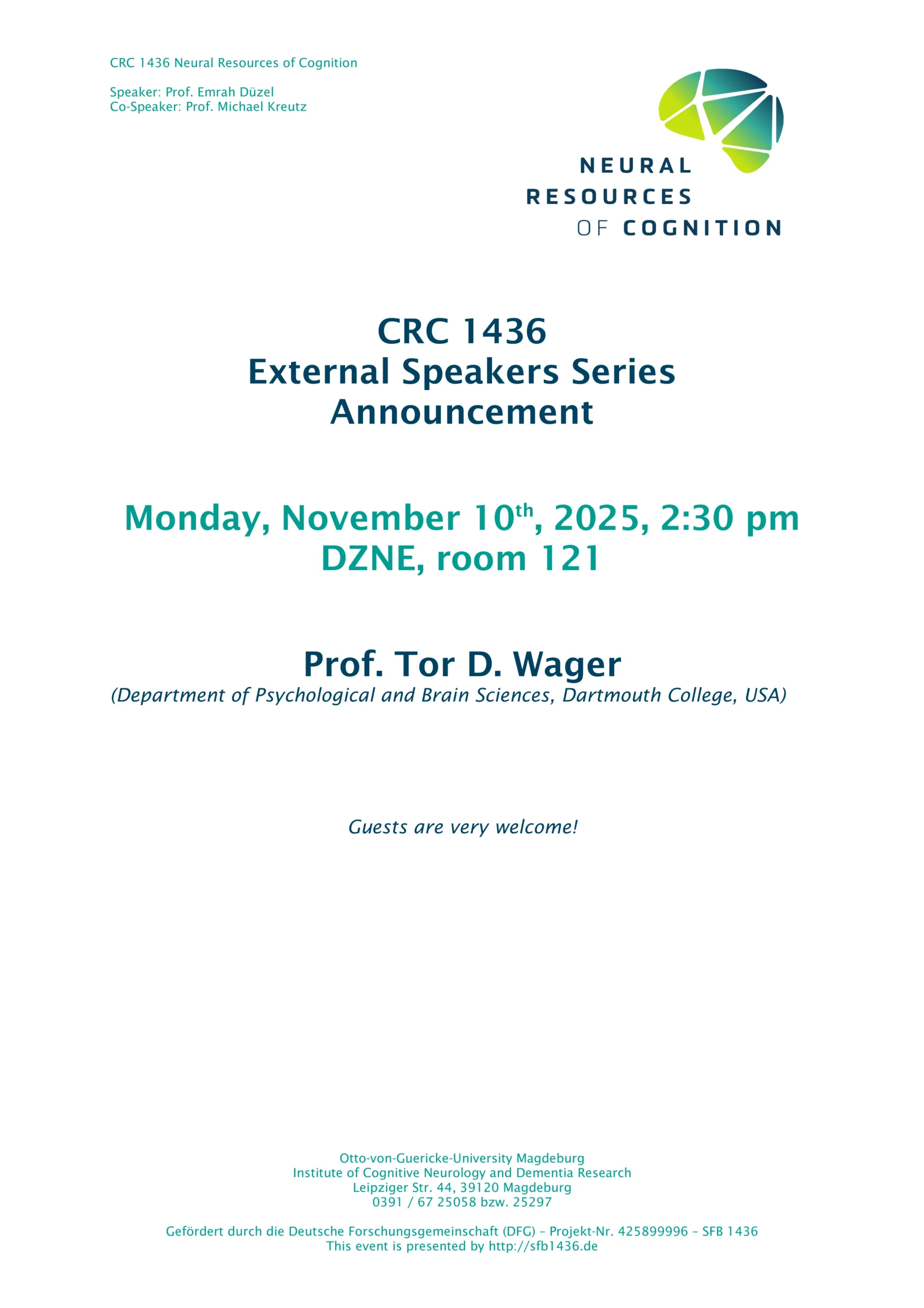Am 10. November 2025 ist Tor Wager vom Dartmouth College (USA) zu Gast in unserer SFB-Vortragsreihe „External Speaker Series“.
Wann: Montag, den 10.11.2025 um 14:30 Uhr
Wo: DZNE, Raum 121
Titel: Lost, and found, in translational neuroscience
Alle Interessierten sind herzlich eingeladen.
Abstract: Understanding and measuring pathophysiology, and how treatments alter it, is a key to translational success. This concept is widely understood and accepted in many branches of medicine, but it has been notoriously difficult to apply to complex brain disorders, including mental health disorders, substance use, and chronic pain. I will describe efforts to create neuromarkers from human fMRI for core processes underlying these complex disorders. These neuromarkers have the potential to serve as pathophysiology-linked treatment targets and thus accelerate the development of brain-based treatments. I describe the construction and validation of neuromarkers for several types of affect central to human health and decision-making. Focusing on neuromarkers for pain in particular, I show how they can serve as brain targets for treatments, including drugs, psychological interventions, neurofeedback, and non-invasive brain stimulation, allowing treatments to be compared and combined to find those that work best.

Bio: Tor Wager is the Diana L. Taylor Distinguished Professor in Neuroscience at Dartmouth College, and the Director of Dartmouth’s Cognitive and Affective Neuroscience laboratory, the Dartmouth Brain Imaging Center, and the Dartmouth Center for Cognitive Neuroscience. Professor Wager’s research centers on the neurophysiology of affective processes—pain, emotion, stress, and empathy—and how they are shaped by cognitive and social influences. One focus area is the impact of thoughts and beliefs on learning, brain function, and brain-body communication. Another focus is the development of brain biomarkers that track and predict affective experience, including pain and other clinical symptoms. A third focus is on statistical, machine learning, and computational techniques that provide a foundation for new models of the affective brain. Professor Wager’s laboratory conducts basic research in these focus areas and applies the resulting techniques and models to collaborative, translational research on clinical disorders and interventions. In support of these goals, Professor Wager and his group have developed several publicly available software toolboxes (see http://canlab.github.io). He also teaches courses and workshops on fMRI analysis and has co-authored a book, Principles of fMRI. More information about Dr. Wager and his lab’s activities, publications, and software can be found at http://canlab.science.

